IN MEMORY OF FILM FIGURES WE LOST IN 2021-2022: Masayuki Kobayashi and Michiaki Watanabe

NFAJ Pays Tribute to Past Triumphs
Venue: National Film Archive of JapanJuly 4 (Sat) – September 3 (Sun), 2023 and October 10 (Sat) – October 22 (Fri), 2023. Please see on theater site for more.
Official website: www.nfaj.go.jp/exhibition/yukeru202305/#section1-2
Theater website: www.nfaj.go.jp/english/visit/access/
Tariff: General: ¥520, Student/Senior: ¥310
Advance tickets: www.nfaj.go.jp/english/exhibition/yukeru202305/
Title: 逝ける映画人を偲んで 2021-2022 (Yukeru Eigajin wo Shinonde 2021-2022)
Director: Nobuo Nakagawa, Masahiro Kobayashi (中川信夫、小林政広)
The National Film Archive of Japan (NFAJ) once again pays tribute to important Japanese film figures who died over the past year, focusing on a range of contributors, from writers, directors and actors to art directors, composers and others. The annual series of essential viewing is impressively wide ranging, although this year’s lineup features just two English-subbed films. As always, we encourage you to explore the full lineup, since it’s filled with gems.
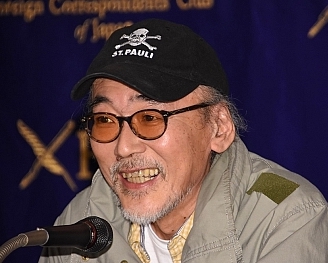
Masayuki Kobayashi
January 6, 1954 – August 20, 2022
The undersung independent director Masayuki Kobayashi (1954 – 2022) started his career as a prolific screenwriter for pinku eiga (softcore porn), and was the first Japanese filmmaker to win the Grand Prize at the Yubari International Fantastic Film Festival in Hokkaido. This encouraged him to found Monkey Town Productions, for whom he wrote, directed and produced three films back-to-back and amazingly won prizes in three consecutive years at the Cannes Film Festival: Kaizokuban Bootleg Film (1999), Koroshi (2000) and Man Walking on Snow (2001). His Bashing also screened at the 2005 Cannes Film Festival.
Kobayashi was also a presence at the Locarno Film Festival, where his Amazing Story (2003), The Rebirth (2007) and Where Are You? (2009) were invited to the competition. The Rebirth won four prizes at the festival, including the Golden Leopard and the Daniel Schmid award. In 2008, Rotterdam International Film Festival, Festival do Rio and the Buenos Aires International Film Festival hosted a retrospective of his films. His final work was Lear on the Shore (2016), starring the legendary actor Tatsuya Nakadai.
Kobayashi’s 2012 film Japan's Tragedy was a response to the 2011 triple disaster after the crippling Tohoku earthquake.
Japan's Tragedy
日本の悲劇
101min, 35mm, Color and B&W, English subs, 2012
Director: Masahiro Kobayashi, 小林政広
October 12, 2023 3:00 PM, Nagase Memorial Hall Ozu
October 21, 2023 1:00 PM, Nagase Memorial Hall Ozu
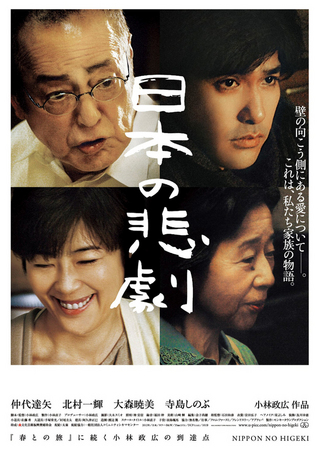
©2012 MONKEY TOWN PRODUCTIONS
In the formally unique film, which opens in October 2011, Fujio Murai (a towering Tatsuya Nakadai) returns home from the hospital, where he was set to undergo a second operation for long cancer, with his unemployed middle-aged son Yoshio (Kazuki Kitamura). His first operation had been on the day of the Tohoku earthquake, March 11, 2011, but he’s now ignored his doctor’s warning — that without the operation, he has just 3 months left — and left the hospital.
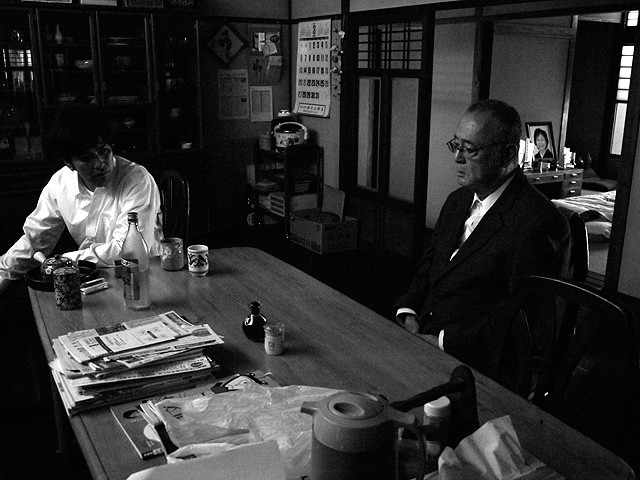
©2012 MONKEY TOWN PRODUCTIONS
The next day, Fujio nails shut the doors and windows to his room, and declares that he’ll become a mummy. Yoshio begs him to stop, to no avail. The days pass by as Fujio recalls one moments from the past, and the audience is forced to contemplate deeply his course of action.
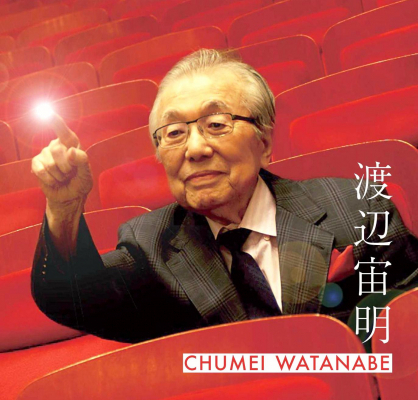
Michiaki (aka Chumei) Watanabe, 渡辺宙明
August 19, 1925 – June 23, 2022
Composer Michiaki (aka Chumei) Watanabe (1925 – 2022) made his debut as a composer for a radio drama produced by the Central Japan Broadcasting Company in the 1950s. Over the ensuing 20 years, he worked regularly with Toho on film soundtracks. After studying with the likes of jazz musician Sadao Watanabe in the 1970s, he introduced brass instruments as well as synthesizers into his composition “Theme of Z” for Mazinger Z, a combination that was then considered unique.
Watanabe would go on to score a range of tokusatsu TV shows and mecha anime. He composed music for live-action series like Kikaider and Inazuman and the anime series Sazae-san, Godannar, Getter Robo Go, and Transformers: Victory, among others. He received an Award of Merit at the 8th Tokyo Anime Awards and an Animation Lifetime Achievement Award at the 25th Japan Movie Critics Awards.
In a 2019 interview with Brett Homenick, Watanabe discussed working with director Nobuo Nakagawa, for whom he scored horror movies The Depths (1957), Black Cat Mansion (1958) and The Ghost of Yotsuya (1959), the latter of which is being shown at NFAJ. He recalled that “The music had to show the sadness of the main character [Oiwa], so the music had to be traditional and show her sadness. In Japan, we exchange New Year’s cards every year. Mr. Nakagawa always put on his card, ‘The music for Oiwa is a masterpiece.’ He wrote that to me every year.”
The Ghost of Yotsuya (1959)
東海道四谷怪談
77min, 35mm, Color, English subs
Director: Nobuo Nakagawa, 中川信夫
July 19, 2023 2:30 PM, Nagase Memorial Hall Ozu
July 27, 2023 12:15 PM, Nagase Memorial Hall Ozu
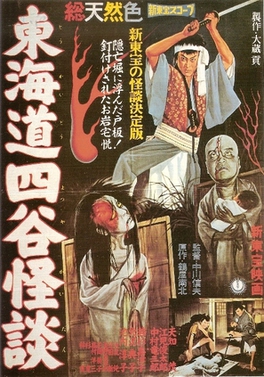
Nobuo Nakagawa adapted many kabuki plays into horror films for Shintoho in the late 1950s, all of them highly stylized and quite successful. While probably best known for his 1960 Jigoku, The Ghost of Yotsuya is still guaranteed to impress... and send delicious shivers down the spine.
The film is based on the popular play Yotsuya Kaidan, written in 1825, and arguably the most famous Japanese ghost story of all time. It has been adapted for film over 30 times and continues to exert an influence on Japanese horror today. The Ghost of Yotsuya tells the story of a ruthless samurai named Iemon Tamiya, who wants to marry Oiwa. He waits outside of the home of her father, and begs him to grant his demand. But the father refuses, inciting an enraged Iemon to kill him and his companion.
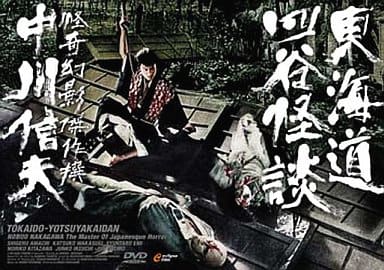
A petty criminal and witness to the murders, Naosuke, who had been working for Oiwa’s father, promises to keep quiet about the act in exchange for Iemon's help. The two then pin the dirty deed on a known felon, and murder the fiancé of Oiwa’s sister, Sode, so that Naosuke can marry her. So far, so evil.
A year later, Iemon and Oiwa are living in Edo with their infant son, and Naosuke’s living with Sode. Iemon isn’t thrilled about being a father and anxious to move up the social ladder. So begins to court the daughter of a nobleman and with his henchman, hatches up a plan to poison his wife… But that, as he discovers in this tale of betrayal and ghostly revenge, is not a wise course of action.
National Film Archive of Japan
Please be sure to check with the theater before going.
